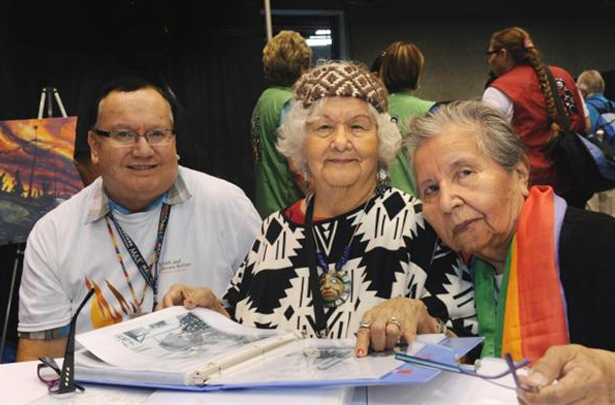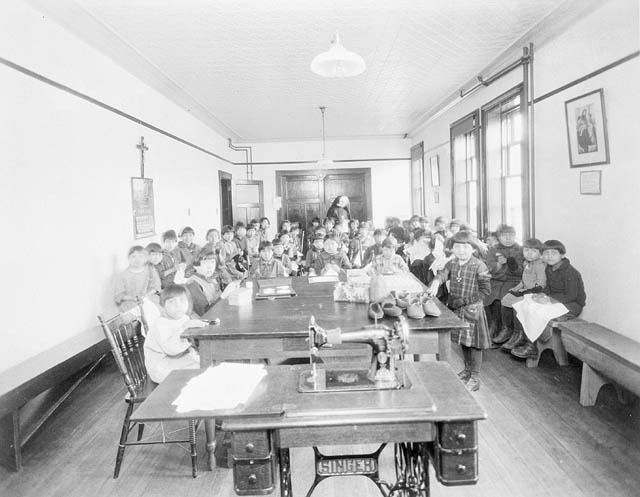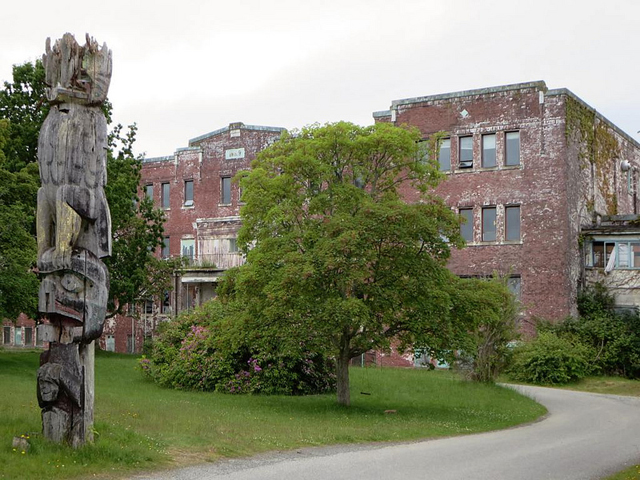
Renee Nahanee, Audrey Rivers, and Lila Johnston
of the Squamish Nation
Photo: Ward Perrin, PNG
Adapted from The Vancouver Sun
Level 3
What were residential schools?
Aboriginal children were taken away from their homes. They were forced to live at schools away from their families.
The schools were called Indian Residential Schools.
Read the PDF. Try the Exercise.
The children were not allowed to speak their language. They could not practice their culture and traditions. They were often abused and underfed.
Over 150,000 Aboriginal children went to residential schools. The children who attended these schools are called ‘survivors’.
Families and communities were left with no children to teach and nurture. The children did not have the support or guidance of loving parents.
In 1996 the last residential school closed.
Churches operated the schools. They have said they are sorry for their treatment of the children.
In 2008, Stephen Harper, Prime Minister of Canada, apologized for all Canadians.
What is Truth and Reconciliation?
Truth and Reconciliation is a process for healing. It’s also a process for moving ahead.
The word ‘reconciliation’ means to make better relationships.
“It’s an opportunity for all of us to come together and start on a new path of hope for the future,” said Chief Wilton Littlechild.
The process involves:
- survivors telling about their experience in the Indian Residential schools
- witnesses listening and re-telling the stories
- everyone celebrating Aboriginal heritage
How will this be done?
Events are being held across the country. They have already happened in Manitoba, Inuvik, Nova Scotia, Saskatchewan and Quebec. In September British Columbia hosted a week-long event.
Events are being held across the country. They have already happened in Manitoba, Inuvik, Nova Scotia, Saskatchewan and Quebec. In September British Columbia hosted a week-long event.
“We are calling on you as survivors to talk about the past. We are making you look backwards but it is necessary if we are going to turn around and look into the future.”
Renee Nahanee, a representative of the Catholic Church

